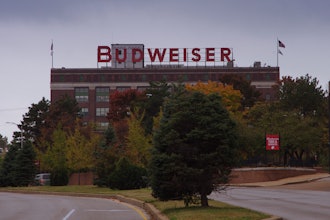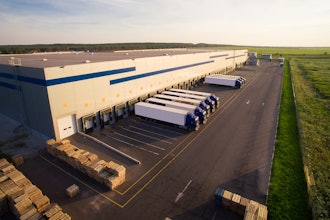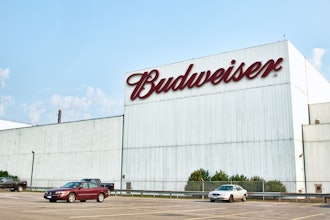MADISON, Wis. (AP) — Oscar Mayer employees and government officials struggled to come to grips Wednesday with the news that the meat processer's parent company will shut down its Madison headquarters, wiping out hundreds of jobs at a company that has been a part of the community's fabric since 1919.
Kraft Heinz Food Co. said the Madison Oscar Mayer offices and adjoining processing plant is one of seven plants in the U.S. and Canada that will close as part of an effort to save $1.5 billion in costs. The headquarters will shift from Madison to Chicago; the other plants slated for closure include facilities in Fullerton, California; San Leandro, California; Federalsburg, Maryland; St. Marys, Ontario, Canada; Campbell, New York; and Lehigh Valley, Pennsylvania.
The company plans to shed a total of 2,600 jobs. About 300 corporate workers in Madison will be offered jobs at the company's co-headquarters in Chicago; the remaining 700 or so production workers here will lose their positions in three waves of layoffs over the next two years, Mayor Paul Soglin said at a news conference.
"It definitely bites," said Joshua Nehls, 38, of Janesville, who has worked at the Madison facility for a decade; his current task is packing Lunchable snack packs. "It's tragic. There were a lot of tears (when company officials announced the closure). A lot of people's lives are here."
Oscar G. Mayer, son of the man who founded the company, decided to buy a slaughtering plant in 1919 to supply raw materials for processed meats.
The company moved its corporate headquarters from Chicago to Madison in 1955, according to a Kraft Foods timeline. The company started its continuous wiener process machine, capable of producing 36,000 wieners per hour, in Madison in 1962.
Since then Oscar Mayer has become known for its cold cuts, its "My bologna has a first name, it's O-S-C-A-R" jingle and its Wienermobiles, 27-foot-long vehicles shaped like hot dogs that travel the nation promoting the company.
Generations of people from around south-central Wisconsin have worked at the massive plant on the city's north side. House Speaker Paul Ryan, who grew up in Janesville, about 40 miles away, was a salesman for Oscar Mayer and once drove a Wienermobile. State Sen. Fred Risser, an 88-year-old Madison Democrat, spent a summer working there during World War II, when he was 17.
"It's an institution for the city of Madison," Risser said at the mayor's news conference. "It's been around longer than I have. We're going to miss it. It's like a death in the family."
Soglin told reporters he had no idea the closing was coming until a corporate official visited his office Tuesday evening to break the news. He tried to put a positive spin on the closure, noting the city has emerged from recession. But he said the economic impact would be "very significant."
"These men and women have dedicated their lives to this company, and they and their families are of the utmost concern to me," Soglin said. "They are the heart and soul of the Northside."
Asked for comment on the closure, Gov. Scott Walker's spokeswoman, Laurel Patrick, responded with an email saying Wisconsin's economy is growing. She said the state Department of Workforce Development would help connect affected workers with potential employers and provide job training and job search assistance.
Pat Schramm, chief executive of Workforce Development Board of South Central Wisconsin, said her agency would work to subsidize retraining for employees. She said a team was being put together to survey workers' skills and training needs. Her agency also will help re-train any employees who work for the plant's multiple supply vendors if they're laid off.
Doug Leikness, president of United Food and Commercial Workers Local 538, which represents Oscar Mayer production workers, said he was upset that he found out about the closure Wednesday afternoon from reporters rather than company officials. He said the layoffs mean the union could lose as much as half its revenue from dues.
"Just disgust. Sadness," Leikness said as he stared at the floor in his office, hands jammed in his pockets. "We didn't see it coming. It's going to be a travesty for the community."






















